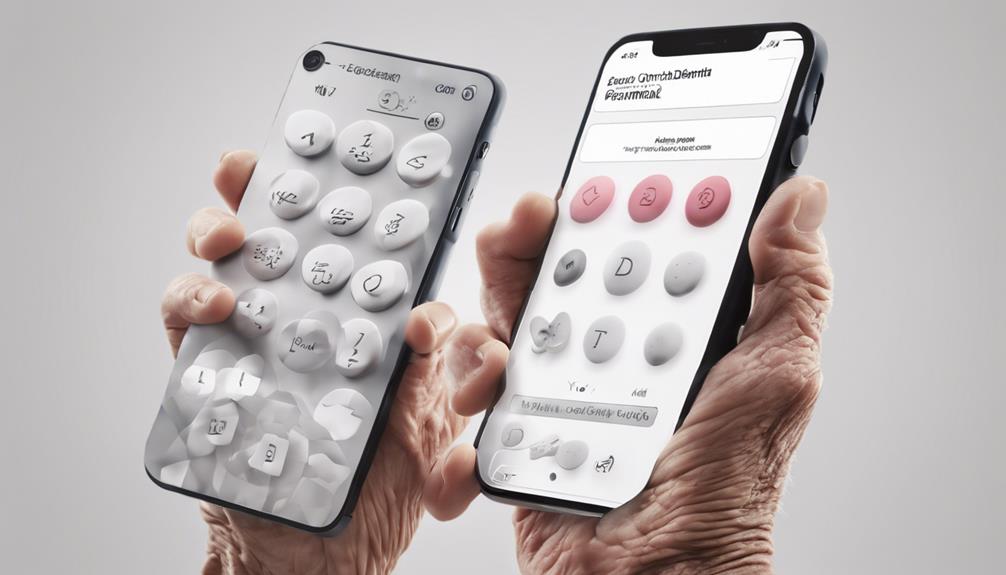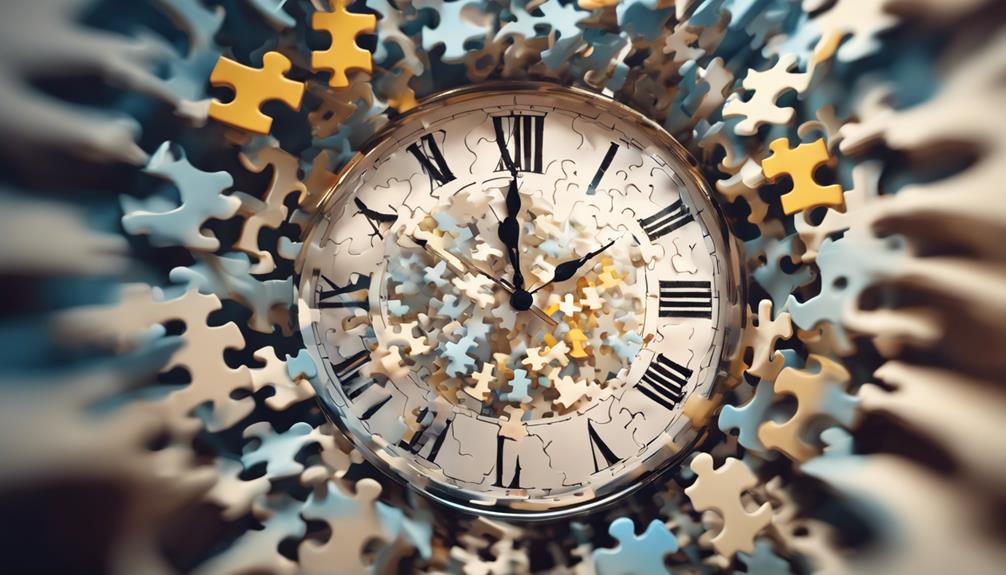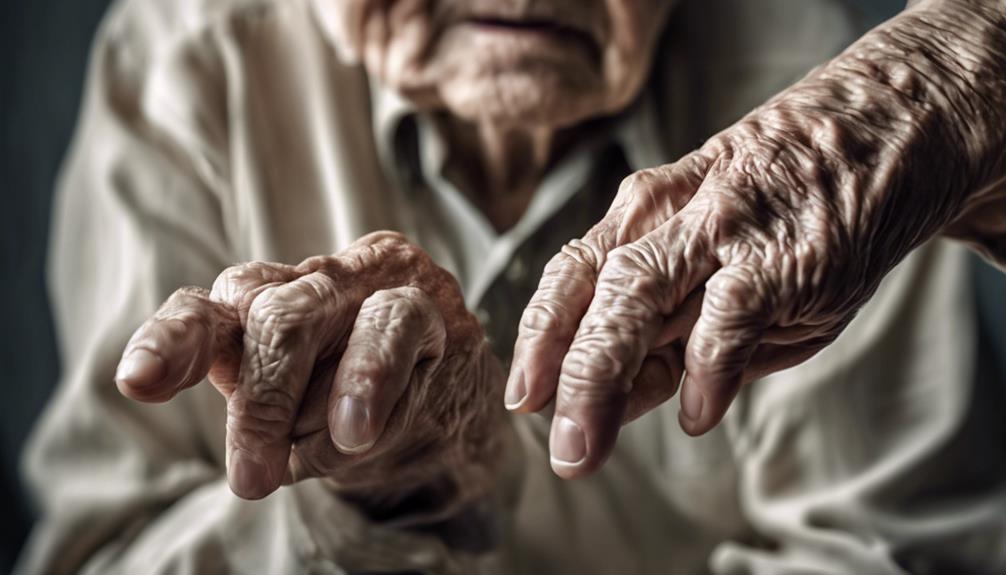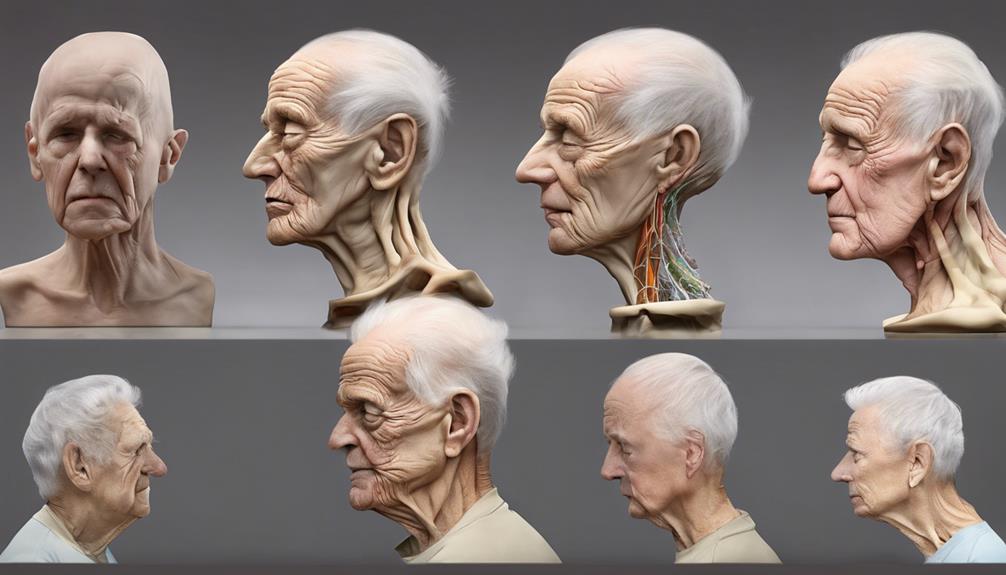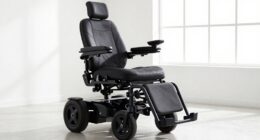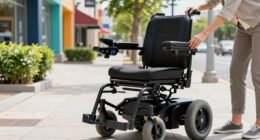Phones designed for individuals with dementia are crucial tools for aiding memory and fostering important relationships.
But what makes these phones truly stand out? Well, let's just say that the innovative features they offer go beyond the standard functionalities we're used to.
From picture dialing to simplified interfaces, these specialized devices cater to specific needs, ensuring a seamless user experience.
But there's more to uncover about how these phones can truly make a difference in the lives of dementia patients and their caregivers.
Key Takeaways
- Picture dialing aids memory recall for seniors with dementia.
- Emergency call buttons on specialized phones offer security and quick assistance.
- Simplified interfaces with large buttons reduce confusion and frustration.
- GPS tracking and medical alert features ensure safety and peace of mind.
Benefits of Specialized Dementia Phones
When navigating the challenges of dementia, specialized dementia phones serve as invaluable tools for enhancing memory and maintaining connections. These phones are specifically designed to cater to seniors experiencing cognitive decline. One key benefit of specialized dementia phones is their picture dialing feature, allowing users to associate faces with numbers, aiding memory recall.
Additionally, the inclusion of emergency call buttons provides a sense of security for both the seniors and their caregivers. The simplified interfaces of these phones reduce confusion and frustration, enabling seniors to stay connected with their loved ones more easily.
Moreover, specialized dementia phones offer larger buttons and clear displays, making them more user-friendly for individuals with dementia. These features are crucial in supporting daily functioning and independence. By providing GPS tracking and medical alert capabilities, these phones offer peace of mind to caregivers, ensuring the safety of their loved ones.
Features to Look for in Phones
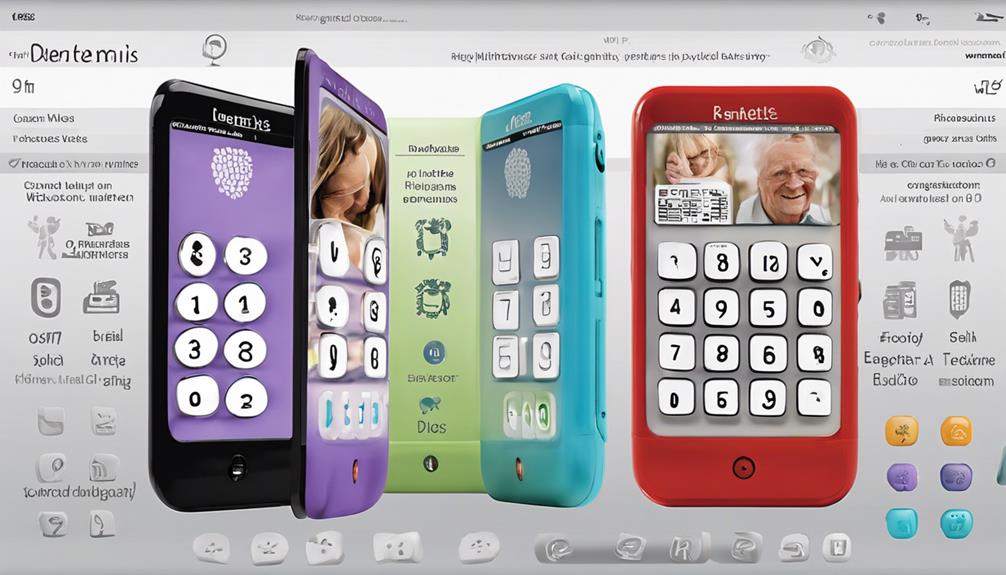
As we consider the essential features to look for in phones for dementia patients, prioritizing memory picture options can greatly facilitate easy dialing and communication for individuals experiencing cognitive decline. When choosing a phone for a loved one with dementia, here are some key features to keep in mind:
- Memory Picture: Opt for phones with programmable photos for easy dialing.
- Emergency Alert: Look for phones with large keypads, SOS pendants, and GPS tracking for enhanced safety.
- Call Control: Consider devices like teleCalm and CPR Call Blocker to manage incoming calls effectively.
These features can provide seniors with dementia the support they need to stay connected, safe, and in control of their communication. By selecting a phone that caters to their specific needs, you can help enhance their quality of life and provide peace of mind for both them and their caregivers.
Importance of Easy-to-Use Interfaces
Easy-to-use interfaces on phones for dementia patients play a crucial role in simplifying communication and reducing frustration for individuals facing cognitive challenges. These interfaces are designed with features like large buttons, simple menus, and straightforward navigation to assist those with cognitive decline.
Customizable settings further enhance the user experience by allowing caregivers to tailor the phone to the specific needs and abilities of the dementia patient. Accessibility features such as voice commands and picture-based dialing make the phone more intuitive for seniors with dementia, promoting independence and ease of use.
Top Phone Recommendations for Dementia Patients
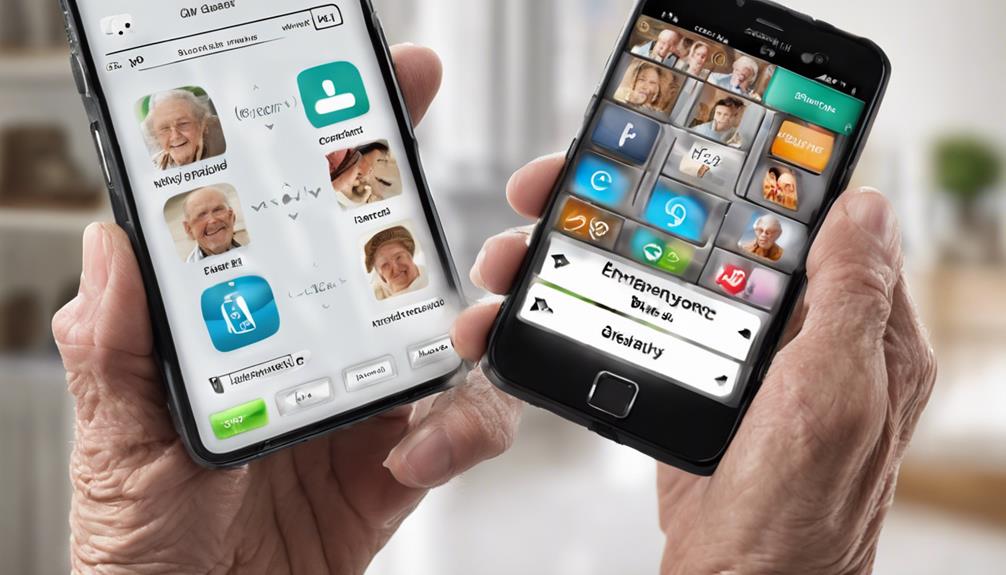
Phones specially designed for dementia patients offer a range of features tailored to enhance safety and ease of communication. When considering the best cell phones for seniors with impaired memory, the following options stand out:
- RAZ Memory Cell Phone: This phone provides a unique solution with features like a medical alert system, the ability to display a picture of the person they're calling, and an emergency button for quick assistance.
- Jitterbug Flip: Known for its user-friendly interface, this phone offers not only medical alert capabilities but also GPS tracking and voice monitoring, ensuring the safety of seniors with dementia.
- TCL FLIP Go: With exceptional battery life and affordability, this phone is a practical choice for those looking for a reliable device. It also offers monitoring capabilities and features that cater to the specific needs of dementia patients.
These cell phones for seniors with dementia provide not only essential communication tools but also peace of mind for caregivers, making them valuable assets in ensuring the well-being of their loved ones.
Enhancing Communication and Safety
Transitioning from discussing the top phone recommendations for dementia patients, we now focus on enhancing communication and safety for seniors with cognitive impairments. When it comes to aiding seniors with dementia in staying connected and secure, there are various devices tailored to their specific needs. Below is a comparison table outlining some key features of these devices:
| Device | Features |
|---|---|
| Memory Picture Phones | Easy dialing with programmed photos for memory assistance |
| Emergency Alert Phones | Large keypads, SOS pendants, and GPS for safety |
| Call Control Devices | Manage unwanted calls efficiently with devices like teleCalm and CPR Call Blocker |
These devices not only facilitate communication but also provide essential safety measures for seniors with dementia. Memory phones offer the benefit of aiding in remembering important contacts and daily tasks, while emergency alert phones ensure quick assistance during unforeseen situations. By incorporating these specialized devices, we can enhance the quality of life for seniors facing cognitive challenges.
Frequently Asked Questions
What Is the Best Phone for Someone With Dementia?
When selecting a phone for someone with dementia, we prioritize simplicity, ease of use, and essential features like calling and emergency assistance. Phones with picture dialing, large buttons, and limited functions are beneficial.
Consider models with GPS tracking, medical alerts, and caregiver support for enhanced safety. Specialized memory phones offer unique features like picture contacts and remote management.
Recommended models like Consumer Cellular GrandPad and Jitterbug Smart4 provide tailored solutions for seniors with dementia.
Should Someone With Dementia Have a Cell Phone?
We believe that having a cell phone can greatly benefit someone with dementia. It provides a sense of independence, safety, and connection. Customized phones with simplified functions and safety features are essential for daily living.
GPS tracking and medical alerts offer peace of mind during emergencies. Caregivers can manage calls to ensure appropriate communication. Choosing a phone that aligns with the dementia stage enhances the user experience for seniors.
What Are 3 Things to Never Do With Your Loved One With Dementia?
When caring for a loved one with dementia, it's essential to remember three things:
- Never argue or correct them, as it can lead to frustration.
- Avoid rushing or hurrying them, as it causes confusion.
- Refrain from using complex language or asking too many questions, which can overwhelm.
These actions help maintain a calm and safe environment for the individual, promoting better communication and understanding.
What Is the Average Age of Death for Someone With Dementia?
We understand that knowing the average age of death for individuals with dementia can be concerning. It's vital to acknowledge that this varies based on factors like the type of dementia and overall health.
While Alzheimer's patients may live 4 to 8 years post-diagnosis, those with vascular dementia typically have a shorter life expectancy of around 5 years.
Support systems and quality care from caregivers and healthcare professionals are crucial in enhancing well-being and longevity.
Conclusion
In conclusion, specialized phones for dementia patients offer crucial support in maintaining connections and enhancing safety.
Did you know that nearly 60% of individuals with dementia experience communication difficulties? By selecting phones with user-friendly features and picture dialing, caregivers can greatly improve the quality of life for their loved ones.
Let's continue to prioritize communication and safety for those living with dementia through the use of specialized phones.
